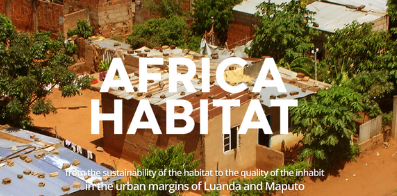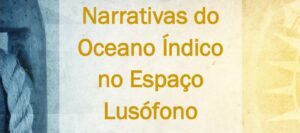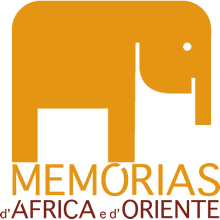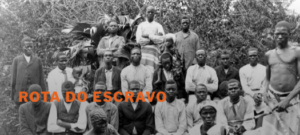CEsA Projects
Here you can find the list of previous and ongoing CEsA Projects.
Our Lands are Disappearing: A Study of Gully Erosion Impacts in Southeast Nigeria and the Urgent Need for Immediate Sustainable Action
2024-2025
Research coordinator: Vincent Agulonye (CEsA/CSG/ISEG-ULisboa)
Research team: Daniel Adayi (CEsA/CSG/ISEG-ULisboa) and Francisca Ezeigwe
Project Description:
This study aims to determine the effects of climate change and human-induced land degradation – soil and gully erosion – on selected communities in southeast Nigeria with a focus on the economic impact on erosion on the livelihood of displaced families, mapping communities’ adaptation strategies to the water contamination because of erosion, the effects of the displacements caused by erosions on children of primary school ages, and the response strategies for their sustainability.
Funding:
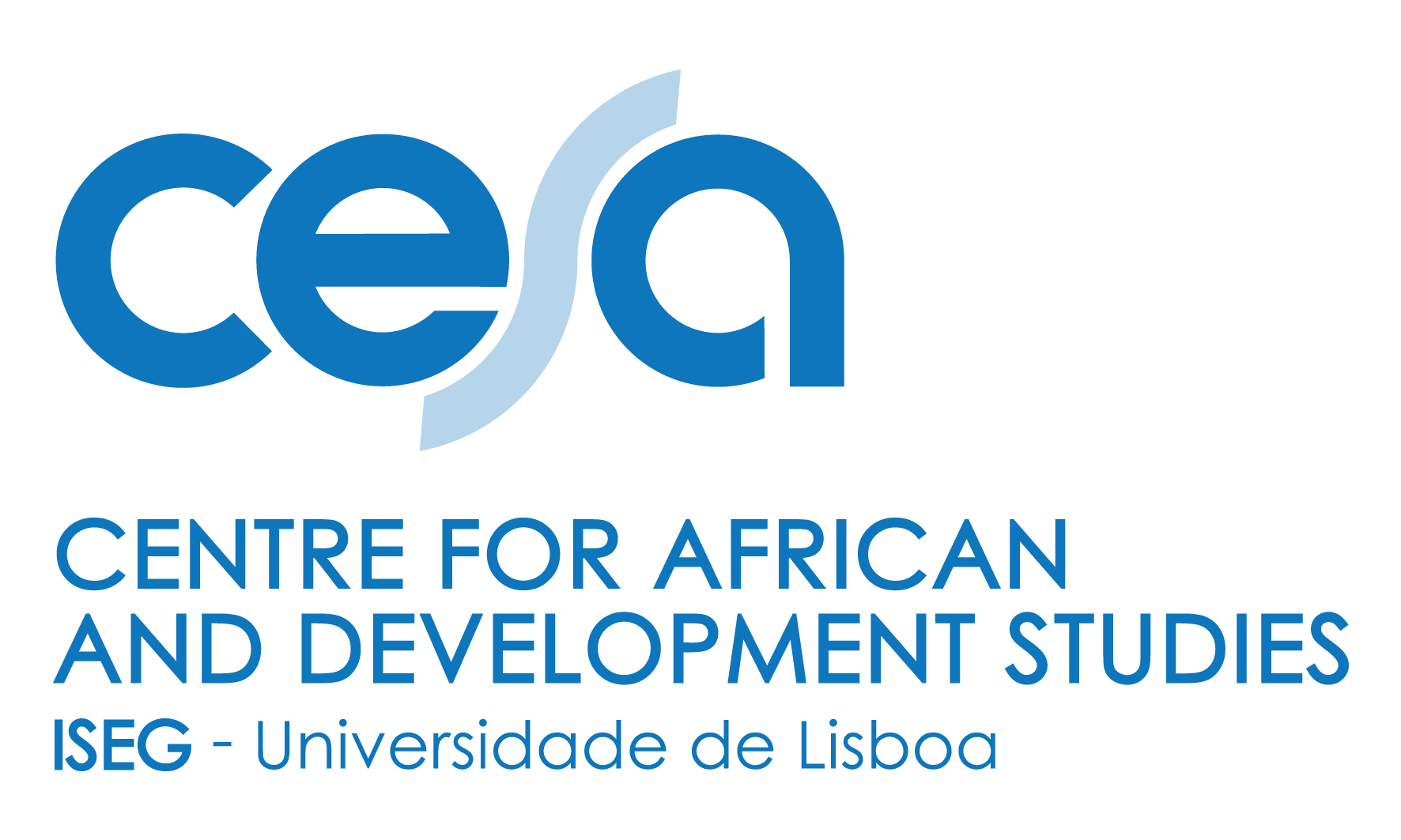
MULTIBIZ – Multiplexing Business Power: The EU and Global Infrastructure Competition
2024-2025
Research coordinator: Luis Pais Bernardo (CEsA/CSG/ISEG-ULisboa)
Project description:
This project examines business power in the context of a multiplexing world order and uses the European Union’s Global Gateway strategy as a case study. It develops the concept of multiplexing business power to clarify the changing role and position of business in the changing world order and the ongoing global drive for infrastructure development.
Funding:

Challenges of climate change in rural Africa: agricultural transition and farmers’ resilience on the island of Santo Antão – Cape Verde
2024-2025
Research coordinators: Sónia Frias (CEsA/CSG/ISEG-ULisboa), Arlindo Fortes (CEsA/CSG/ISEG-ULisboa) e Leonel Fernandes Landim (ICTA/UTA)
Project Description:
This project aims to contribute to understanding how individuals and rural African communities, in particular, are coping with the effects of environmental changes.
We believe that studies on the possibilities and mechanisms for adapting to climate change have insufficiently valued elements of cultural, social, or small-scale economic significance within communities. These may be considered micro aspects, but they are fundamental because they provide context and should therefore be included and integrated into analyses of adaptation to change.
Observing the landscapes of the various islands of Cape Verde already reveals their vulnerability to desertification processes and extended periods of drought. In Santo Antão, fluctuations in agricultural production have become increasingly unpredictable, posing significant risks to local populations. Decreasing rainfall is impacting the development of the agricultural sector, on which many families depend.
These vulnerabilities are exacerbated by other factors such as widespread poverty and a significant reliance on natural resources and biodiversity. Consequently, it is essential to consider the nature of these interconnections and how they are themselves being affected by major variations in productive, socioeconomic, and political processes. This project seeks to contribute to discussions on these elements, given their deep roots in the contexts in which they occur.
Funding:

The Emergence of Alternative Forms of Governance in Sub-Saharan Africa. Informal Economies as forms of Social and/or Solidarity Economy on the island of Santiago (Cape Verde) and in Cabo Delgado Province (Mozambique)
2024-2025
Research coordinators: Odair-Barros-Varela (CEsA/CSG/ISEG-ULisboa) and Júlio Ambrósio Masquete (Rovuma University – Cabo Delgado, Mozambique)
Project Description:
The research will take place on the island of Santiago (Cabo Verde) and in Cabo Delgado Province (Mozambique), and will focus on studying the modus operandi of the protagonists of the Informal Economies, namely the Rabidantes in the case of Cape Verde and the “informal” traders in Mozambique. In the case of the latter, recent statistics estimate that around 13 million citizens engage in “informal” trade, representing almost half of the Mozambican population, estimated at around 30 million people, and that the “informal” sector contributed around 45 percent to the Gross Domestic Product (GDP). The main purpose of this project is to contribute to the creation of an research agenda on informal economies (as part of the Social and/or Solidarity Economy), looking at knowledge not as a simple conceptual reproduction of objective data from reality, but as an authentic constitution and/or foundation of it, centered on the subjects.
Funding:

Conference 50 anos da Literatura Moçambicana: Percursos e Práticas Criativas (“50 years of Mozambican Literature: Trajectories and Creative Practices”)
October 9-10, 2025, Room 1 of the congress area at the Calouste Gulbenkian Foundation (Av. de Berna, 45A, 1067-001 Lisbon)
Research coordinator: Ana Mafalda Leite (CEsA/CSG/ISEG/ULisboa)
Support granted within the scope of the competition “50th anniversary of the independence of PALOP”, from the Calouste Gulbenkian Foundation.
Funding:


Oficina Global (Global Workshop)
2021- ongoing
Research team: Ana Luísa Silva (CEsA/CSG/ISEG/ULisboa), Prof. Hemma Tengler (CEsA/CSG/ISEG/ULisboa), Prof. Susana Réfega (CEsA/CSG/ISEG/ULisboa), Prof. Luís Pais Bernardo (FEUC e CEsA/CSG/ISEG/ULisboa) e Prof. Luís Mah (ISCTE-IUL e CEsA/CSG/ISEG/ULisboa)
Project Description:
Oficina Global is an initiative of a group of researchers from CEsA (Centre for African and Development Studies at ISEG) and lecturers in the Master’s in International Development and Cooperation at ISEG (Lisbon School of Economics and Management). We believe that the university, as an agent of education and knowledge production, has an added responsibility in the process of change. Our vision is that of a citizen university, whose educational and academic action contributes to building a better world. Therefore, our mission is to establish a constructive and permanent dialogue between the various actors who work for global change, through the production and dissemination of knowledge and critical thinking about processes of social transformation.
AFRO-PORT – Afrodescendence in Portugal: sociabilities, representations and socio-political and cultural dynamics. A study in the Lisbon Metropolitan Area
2018-2022
Research coordinator: Prof. Iolanda Évora (CESA/CSG/ISEG/ULisboa)
Project description:
At a time when we celebrate the Decade of African Descendants (2015-2024), proclaimed by the UN, it is of high social and academic/scientific relevance to address the issue in Portugal. The UN considers that “people of African descent still have limited access to quality education, health services, housing and social security (…) Their situation remains largely invisible and there is insufficient recognition of the effort in search of redress for their current condition. Besides, they are discriminated against in the access to justice and present alarming rates of police violence associated to racial profiling”. In this project we propose to characterise the Portuguese population of African origin whose self-identification as Afrodescendant guides their participation in the Portuguese social scene.
Project reference: PTDC/SOC-ANT/30651/2017
Funding:

AFRICA HABITAT – From the sustainability of habitat to the quality of inhabit in the urban margins of Luanda and Maputo
2018-2022
Research coordinators: Profs. Isabel Ortins de Simões Raposo (FA/ULisboa) and Sónia Frias (CESA/CSG/ISEG/ULisboa and ISCSP/ULisboa)
Project description:
The project deals with forms of socio-urbanistic and housing intervention in the urban margins of African cities of Lusotopie, in the new millennium, focusing on those that contribute to improving the quality of inhabit and the sustainability of habitat of low-income groups. In the current context of accelerated urbanisation, globalisation and increasing socio-spatial inequalities, inscribed in the neoliberal paradigm, it is urgent to reflect on the impact of such interventions, as well as on how to construct a more inclusive habitat and on how and what to do to reinforce them. Luanda and Maputo, with similar structural constraints, are taken as case studies.
Funding:


Aid2Growth – From Poverty to Economic Growth: Aid, Business Interests and the 2030 Agenda for Sustainable Development
2018-2021
Research coordinator: Prof. Luís Mah (CESA/ISEG, Ulisboa)
Project description:
The Aid2Growth project investigates the transformation of European and East Asian development finance institutions (DFI) in a changing global arena where East Asia is on the rise and the importance of private flows is increasing. While research on DFIs is a burgeoning field, Aid2Growth innovates by adopting an explicitly comparative perspective that couples European and East Asian agencies at a time when these actors are more important than ever. As traditional ODA instruments (grants and concessional loans) become less central to many (but not all) developing countries, blended finance and private sector engagement programmes, policies and projects replace them as central to development strategies. DFIs are the preferred agencies through which this agenda is enacted and pursued.
Aid2Growth provides knowledge on the organizational structures, processes and priorities of each agency selected for in-depth study. Furthemore, it provides a visually appealing dashboard with up-to-date statistics on DFI activity. The project aims to enhance DFI transparency through research and the portal you’re now exploring is a major part of our activities. Project deliverables include case studies on relevant European and East Asian DFIs and a Data Hub on DFI activity.
Project reference: PTDC/CPO-ADM/28597/2017
Funding:

NILUS – Narrativas do Oceano Índico no Espaço Lusófono (Narratives of the Indian Ocean in the Lusophone Space)
2014-2020
Research coordinator: Prof. Ana Mafalda Leite (FLUL e CEsA/CSG/ISEG/ULisboa)
Project Description:
Following the theoretical productions that guide the critical and cultural reflection on contemporary liquid spaces – from the Black Atlantic (Gilroy, 1993) to the South Atlantic (Santos, 2001; Vale de Almeida, 2000; Stam and Shoat, 2012) – the Indian Ocean Narratives in the Lusophone Space project is based on a theoretical and disciplinary articulation between Indian Ocean Studies and Lusophone Literary, Visual and Cultural Studies. In this way, we intend to fill a significant disciplinary gap motivated by the almost total absence of a critical dialogue between these two fields of study, especially in Portuguese-speaking contexts. Observing the scientific production in the area of Indian Ocean Studies, the historical studies, in their political and anthropological articulations, stand out as the most developed, mainly regarding the period before the arrival of the Europeans in the Indian Ocean and the pre-modern period, while the modern and contemporary periods remain less studied (Pearson, 2011). In the light of these considerations, it is believed that the disciplinary dialogue proposed by this Project points to analytical, conceptual and epistemological potentialities of great relevance and timeliness, providing a significant broadening of the areas of study in object.
Project reference: PTDC/CPC-ELT/4868/2014
Funding:

![]()
NEVIS – Narrativas Escritas e Visuais da Nação Pós-Colonial (Written and Visual Narratives of the Post-Colonial Nation)
2012-2015
Research coordinator: Prof. Ana Mafalda Leite (FLUL e CEsA/CSG/ISEG/ULisboa)
Project Description:
The proposal of the Project Written and Visual Narratives of the Post-Colonial Nation aims to problematize how the literary and film narrative of Cape Verde, S.Tomé and Príncipe and Guinea-Bissau, constitutes a laboratory conducive to the construction of imagined communities and the projection of new identities. Our purpose is to investigate the role of narrative – in various aspects, such as the novel, the short story, the film, the documentary – as well as the parallel paratextual production, through the testimonies of authors and directors (and of authors who are directors at the same time) – in the construction and deconstruction of concepts such as nation, ethnicity, diaspora, migration, transnationality, configuring and disfiguring identities, grounding the research on an adequate theoretical support in the area of post-colonial studies.
Project reference: PTDC/CPC-ELT/4939/2012
Funding:

NNPC
NNPC – Nação e Narrativa Pós-Colonial (Nation and Post-Colonial Narrative)
2007-2011
Research coordinator: Prof. Ana Mafalda Leite (FLUL e CEsA/CSG/ISEG/ULisboa)
Project Description:
O projeto NNPC propõe-se indagar o papel da narrativa – em várias vertentes de escrita – bem como a produção paratextual paralela – na construção e desconstrução de conceitos como nação, diáspora, migração, pós-nacionalidade, configurando e desfigurando identidades. Visa descrever essencialmente três tópicos relevantes para estas representações: Imagens/Temas da História e a da Memória colonial e pré-colonial na reconstrução e releitura pós-colonial, enquanto des(ocultação) e reconfiguração de passados históricos e míticos; Imagens/Temas da Localização e Deslocalização: Viagem e Diáspora enquanto descrição de diferentes etnopaisagens, criadoras de movimentos no sentido centro/periferia, urbano/rural, local/global, que permitem surgimento de configurações identitárias pluralizadas, e Estratégias Discursivas: Géneros/Cânones reconfigurados na escrita, enquanto herança e transformação de modelos genológicos e linguísticos diversos, adequados a procedimentos de figuração nacional e identitária.
Project reference: PTDC/AFR/68941/2006
Funding:

Memórias d’África e d’Oriente (Memories of Africa and the East)
1997- ongoing
Research coordinators: Prof. Carlos Sangreman (UAveiro e CEsA/CSG/ISEG/ULisboa), Prof. Joaquim Arnaldo Martins (UAveiro) e Dr. Hélder Oliveira (Fundação Portugal-África)
Project Description:
The Portal of Memories of Africa and the East is a project of the Portugal-Africa Foundation developed and maintained by the University of Aveiro and the Centre for African and Development Studies since 1997. It is a fundamental and pioneering instrument in the attempt to enhance the historical memory of the ties that unite Portugal and the Lusophone world, thus being a bridge with our common past in the construction of a collective identity for the peoples of all those countries.
Funding:


Rota do Escravo (Slave Route)
1994-2020
Research coordinator: Prof. Isabel Castro Henriques (CEsA/CSG/ISEG/ULisboa)
Project Description:
In 1993, the General Conference of UNESCO approved in its 27th session, at the proposal of Haiti and African countries, the creation of the Project “The Slave Route” (Resolution 27/C/3.13). The project was officially launched in 1994, in the city of Ouidah, Benin, with the central concern of contributing to a revision of the history of slavery and the slave trade in the world, within the framework of UNESCO’s values. It is based on five pillars: fulfilling the duty of memory, promoting pluralism and intercultural dialogue, favouring the establishment of a culture of peace and social cohesion, stimulating the construction of new identities and citizenship arising from the slave trade and slavery and establishing the historical truths about the phenomena of this nature.
The Portuguese Committee of the UNESCO Project The Slave Route was born in the framework of this initiative, through the proposal of Isabel Castro Henriques, member of the International Scientific Committee of this project since 1995. Supported by the UNESCO National Commission in Portugal, and homologated by the Ministry of Foreign Affairs in 1998, the Portuguese Committee integrates researchers from different backgrounds and competences, promoting multiple activities on these issues, in the spheres of education, culture, science and communication, in order to stimulate reflection and debate in the Portuguese society. The implementation of its work is based on the establishment of partnerships with various public (municipalities, universities, libraries) and private entities, both national and international, especially with the CPLP countries. The Portuguese Committee develops a regular action through conferences, workshops, publications, exhibitions, production of didactic materials and other relevant initiatives within the scope of its objectives.


